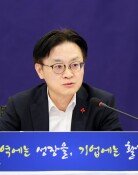[Editorial] Alternative Education Needs Expansion
[Editorial] Alternative Education Needs Expansion
Posted February. 07, 2009 09:01,
Certain district offices in Seoul have begun providing educational services for residents. For example, Dobong-gu offers English classes by native speakers for elementary students. Gwanak-gu in collaboration with Seoul National University has set up an educational institute to provide science and math classes aimed at nurturing talented youth. These classes are receiving a warm response from residents as they provide quality lessons for relatively cheap tuition.
Private education is a huge burden on households with students, especially given aggravating financial difficulty. Though parents want to cut costs for private education considering the gloomy economic outlook, they seldom do so since their childrens future is at stake. A survey conducted by the Korea Chamber of Commerce and Industry of 520 households in the metropolitan areas found that only 2.3 percent of them cut private educational costs for their children from a year ago. This means most households have hardly reduced expenses even in the face of worsening financial hardship. Those who suffered income losses would have been forced to cut back on other indispensible expenses. Under the circumstances, if alternative education is offered on the public level, it will significantly reduce the burden of households with students.
The Seoul Metropolitan Office of Education will run a pilot school program designed to eliminate the need for private education. Under the plan, nine elementary and secondary schools will be selected in the Seoul districts of Gangnam, Yangcheon and Nowon, which are packed with private institutes. Stronger afterschool programs will follow. If the students later produce tangible results in college admission, the project will have positive ramifications for the intended goal down the road.
Schools should not ignore parents who are suffering from snowballing private educational fees. Schools and teachers must cooperate to improve academic achievement for students. As a country with few natural resources, Korea must nurture talent and help them develop potential to raise national competitiveness. The public sector should play a key role in these efforts.
If Korea can satisfy high educational demand for children with useful programs that replace private tutoring and institutes, the programs themselves will be effective welfare measures for the peoples livelihood. Until now, certain districts have neglected such efforts to create quality educational services. Despite the huge gap in educational levels among regions, those with low levels have barely made efforts to improve the situation. Now is the time to change that with quality educational services set by provincial authorities. Public educational services should take firm root and expand across the nation.



![보아, 25년만에 이별…SM엔터 “자부심이자 상징” [공식]](https://dimg.donga.com/c/138/175/90/1/wps/NEWS/IMAGE/2026/01/12/132096928.2.jpg)



